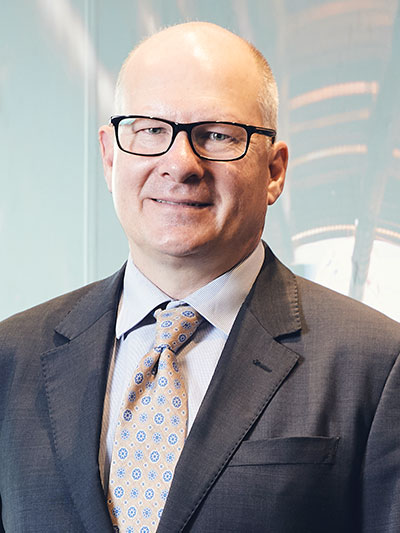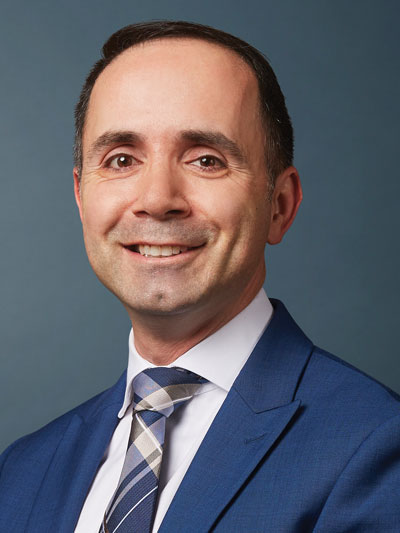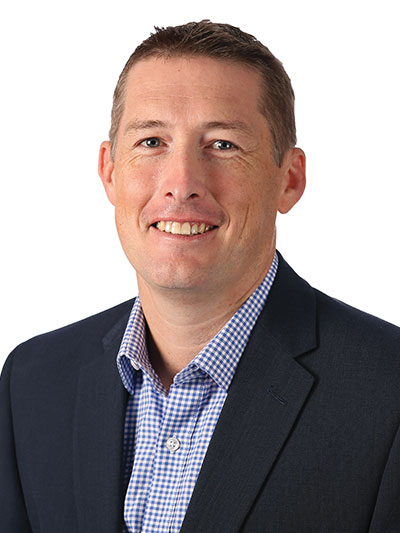
David Atkin – CEO, Cbus
Q: How would you sum up the current ‘state of super’ in Australia?
A: The truth is the Australian system is one we should be proud of. It is the one of the envies of the world. There’s a very strong history of performance and connection with our members, and so there’s strong levels of connection and satisfaction. But we’re going to need to continue to adapt and improve because our members as consumers are changing and their expectations are changing. The weight of money also means the role of super funds in the economy has now become well understood. There are heightened expectations about our responsibility as investors and in our opinion that’s an important area of consideration for us.
Q: What do you see as some of the challenges ahead?
A: The system doesn’t need a fundamental overhaul. It’s important therefore we don’t throw the baby out with the bathwater. We do need to deal with the real problem of multiple accounts. There does need to be some sort of mechanism which enables automatic rollover. There does need to be a genuine end to conflicted remuneration. That was very much identified by the Royal Commission. There does need to be action on self-managed funds (SMSFs) which we think is the next area that really requires a response from government. It’s clear to us the role of accountants advising around retirement is often to their benefit and not necessarily to their clients. And it’s really important that funds can continue to tailor their offerings to specific demographics or industries. That’s one of the real strengths of the Australian system.
Q: How has corporate culture been impacted?
A: Corporate Australia has been put on notice particularly by the Royal Commission. It’s up to the justice system, government and shareholders, which includes us, to make sure this moment isn’t lost. The Royal Commission has shown banks have attempted to squeeze short-term profit through scandals. Shareholders need to be more assertive in sending the signal into banks that we’re not interested in short-term profits but value creation over the long term.
Q: How can trust be rebuilt?
A: The corporates, particularly the financial services sector, need to make sure they are making decisions that are in their customers’ interest, as well as shareholders. They also need to think about being in business, not just next year, but the next ten years. I’d also like to see the financial services sector be more representative of the Australian community. Frankly, it’s not diverse enough.
Q: If I asked you question 1 in five years’ time, how do you think the superannuation landscape will look?
A: We will have provided better services and more tailored responses to our members. We will know who members are and have systems and technology in place to be proactive in tailoring interventions into members’ lives.
At the macro level, the role of super funds in providing capital into the economy will become even more pronounced and even more important. There is the opportunity for the superannuation industry to reward long-term sustainable thinking that meets our community’s desire to live in a world worthwhile living in.

Michael Chaaya – Partner and Head of Financial Services, Corrs Chambers Westgarth
Q: How would you sum up the current ‘state of super’ in Australia?
A: The superannuation industry, along with the broader financial services sector, has undergone significant attention and scrutiny in the past year and is set to undergo a significant shake-up. But it is worth noting that the recent developments in the superannuation industry are not all bad news: in fact, the Financial Services Royal Commission highlighted positive aspects in the industry, in addition to areas where improvements may be needed. So against this backdrop, the current ‘state of the super industry’ could be described as evidencing significant goodwill from superannuation funds and their members. However, some parts of the industry are currently facing pressures to improve culture, increase accountability and to offer products that are in the “best interests” of their members.
Q: What do you see as some of the challenges ahead?
A: The Royal Commission’s report has made a slew of recommendations for the superannuation industry, and both major parties have indicated early on that they support all the recommendations. The challenge is not only translating each of the recommendations into meaningful legislation, but making sure any legislative amendments do not conflict, or complicate, other regulatory changes such as those posed by the Superannuation Bill (Treasury Laws Amendment (Protecting Your Superannuation Package) Bill 2018) or the recent Productivity Commission report into the superannuation industry. The Government needs to reconcile the various recommendations of these inquiries and to make changes that are effective. The history of financial services reform has shown that more laws are not always ‘better’ laws.
The superannuation industry itself must confront the possibility of further regulatory reform and invest the time, energy and resources necessary to respond to the reforms in an adequate fashion.
Q: How has corporate culture been impacted?
A: If one were to try to identify the overarching theme of Commissioner Haynes’ report, it might be said to be corporate culture. The Commissioner places culture as a “root cause” of misconduct in the financial services industry, describing culture as something which can both drive misconduct and discourage it. Commissioner Hayne points out that until very recently, there has been scant overt attention given in Australia to the importance of culture, whether by entities or regulators, but that there are signs of change looking ahead.
If culture has not changed as a result of the Commission, superannuation funds (and the broader financial services industry) are certainly on notice that they need to better self-regulate. An effective entry point to bringing about cultural change is to assess the remuneration and governance structures because these structures show what an entity values and are an expression of culture. Improvements in these governance and remunerations systems should then reduce the risk of misconduct in the future.
Q: How can trust be rebuilt?
A: Some of the revelations from the Commission’s hearings and submissions were stark, and at times, confronting. Customers will no doubt be expecting to see changes and an effort by the financial services industry to take on board the Commission’s recommendations. The superannuation industry is in a position to rebuild trust, and to do so, in some cases will need to undertake board and leadership renewal, cultural remediation and a sharpened focus on the expectations of customers in light of the perceived shortcomings of the financial services industry.
Q: If I asked you question 1 in five years’ time, how do you think the superannuation landscape will look?
A: The superannuation industry has undergone periods of regulatory change in the past and has demonstrated that it is a resilient industry. So, in five years’ time, one would expect the industry to still be performing strongly, if the recent growt
h trajectory in the industry is anything to go by. Perhaps the biggest changes will be to the governance of the industry. The role of ASIC and APRA and the push to embolden these regulators was a central theme of the Commission’s report. If these regulators are given better resources and greater regulatory armoury, as has been recommended, then we can expect to see stronger external governance oversight in the industry in the future.

Glen Hipwood – Executive General Manager, Strategy and Performance, QSuper
Q: How would you sum up the current ‘state of super’ in Australia?
A: I’ve always been optimistic about the role the industry has played improving the retirement outcomes of our members and now that focus on the objective of the system has never been sharper. There are a few defining issues. In particular, the transformation of the industry over the next three years, as a result of the Productivity Commission and Royal Commission recommendations, as well as legislation before Parliament. Those changes will take a lot of time and energy from the industry. But we can’t lose focus on delivering stronger member outcomes, particularly strong risk-adjusted returns as we navigate those changes. We also must ensure the industry maintains collective support of key areas that benefit members. That includes dealing with the unintended creation and maintaining of multiple accounts, meaningful levels of insurances, and fee disclosure and transparency.
Q: What do you see as some of the challenges ahead?
A: Balancing compliance with ongoing strong performance, as we look to implement the governance changes recommended. We also need to improve the image of superannuation, including the related advice and insurance industries. Members do better if they engage so we need to encourage them to have confidence and trust in what we offer, particularly while there is so much attention on superannuation. We have an opportunity to set what ‘good’ and ‘great’ looks like. The product the members receive when they join the fund is just as important as the default option and default system. We need to encourage investments that are not ‘one-size-fits-all’ default. Are they appropriate for the future when we know more about the member through data and information? I think we need to keep lifting the bar and this is an opportunity to do that.
Q: How has corporate culture been impacted?
A: We’re passionate that culture and purpose are key to every part of the business and our practices. Good culture translates to good service for our members. We’re conscious that people who work in the industry have had their confidence dented. We need to recognise that the vast majority are driven by the purpose to act in the best interest of members and we would do well to recognise and support them.
Q: How can trust be rebuilt?
A: Pretty simply, through action. Living the purpose. Demonstrating it through our engagement and the practices of the industry. Having a consistent voice at the industry level. Many would say there is too much change in the rules given super is a long-term investment. Certainty is required to provide confidence and trust, and we as an industry must support that.
Q: If I asked you question 1 in five years’ time, how do you think the superannuation landscape will look?
A: It’s going to be a more consolidated industry. Hopefully with greater member engagement and members realising the value of a well-planned retirement to a fulfilling life. We talk about best interest, so an industry that is synonymous with that through providing tailored solutions and creating value for members. 




































